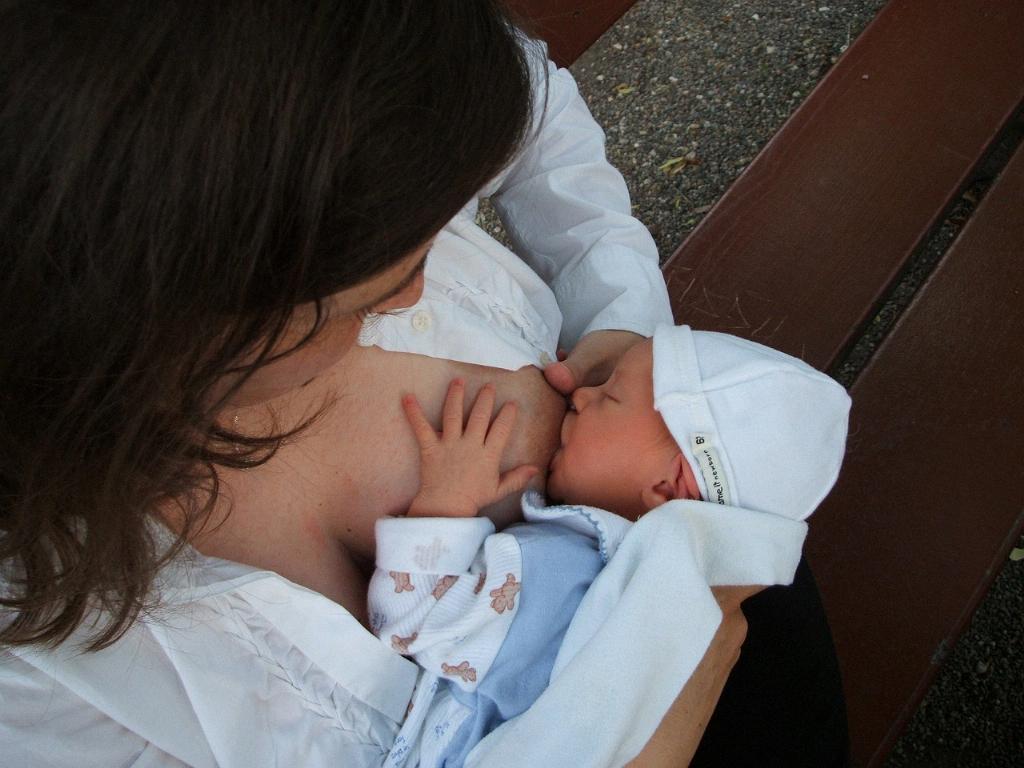When it comes to the delicate balance of managing a newborn’s sleep patterns and feeding schedule, many parents find themselves at a loss. One common question that arises is whether it is advisable to let a newborn sleep immediately after breastfeeding. Let’s delve into this topic and explore the factors to consider.
Newborn Sleep Patterns
Understanding the sleep patterns of newborns is essential in addressing this question. Newborns typically sleep for short periods, waking up frequently for feeding. It’s crucial to prioritize your baby’s feeding needs, as they require nourishment for healthy growth and development.
Nursing Baby to Sleep
Nursing your baby to sleep is a natural and comforting practice that many parents engage in. In the early months, it can be challenging to keep a baby awake after breastfeeding, especially when they are content and full. This closeness and bonding time can promote a sense of security for your baby.
Encouraging Independent Sleep
As your baby grows, it becomes beneficial to encourage them to learn how to fall asleep independently. This can help establish healthy sleep habits and promote better self-soothing skills. While nursing to sleep is common, gradually transitioning your baby to self-soothe can have long-term benefits.
Listening to Your Baby’s Cues
Every baby is unique, and their sleep needs may vary. It’s essential to pay attention to your baby’s cues and signals. If your baby falls asleep after breastfeeding and seems content, there may be instances where it’s appropriate to let them sleep peacefully.
Awareness of Safe Sleep Practices
Regardless of whether you let your newborn sleep after breastfeeding, it’s crucial to prioritize their safety during sleep. Following safe sleep practices, such as placing your baby on their back to sleep and creating a suitable sleep environment, is paramount for reducing the risk of Sudden Infant Death Syndrome (SIDS).
Setting a Bedtime Routine
Establishing a bedtime routine can greatly benefit your newborn’s sleep patterns. Consistent bedtime routines can signal to your baby that it’s time to sleep, promoting a sense of security and predictability. This routine can include activities like a warm bath, gentle massage, or reading a bedtime story.
Seeking Support and Guidance
If you find yourself uncertain about whether to let your newborn sleep after breastfeeding, don’t hesitate to seek support and guidance. Consulting with your pediatrician or a lactation consultant can provide valuable insights tailored to your baby’s specific needs.
Creating a Comforting Sleep Environment
The sleep environment plays a significant role in your baby’s comfort and ability to rest peacefully. Ensuring that the room is conducive to sleep, maintaining a comfortable temperature, and using soothing sleep aids can enhance your newborn’s sleep quality.
Monitoring Your Baby’s Growth and Development
Regularly monitoring your baby’s growth and development milestones can offer valuable information about their overall well-being. If you have concerns about your baby’s sleep habits or feeding patterns, discussing them with your healthcare provider can provide reassurance and guidance.
Embracing Flexibility and Adaptability
Parenting is a journey filled with adjustments and learning experiences. Embracing flexibility and adaptability in your approach to your newborn’s sleep and feeding routines can alleviate stress and foster a nurturing environment for both you and your baby.
Final Thoughts
In conclusion, the decision of whether to let your newborn sleep after breastfeeding can depend on various factors, including your baby’s individual needs, safety considerations, and your parenting approach. Listening to your baby’s cues, seeking guidance when needed, and promoting a secure sleep environment can contribute to fostering healthy sleep habits for your newborn.

